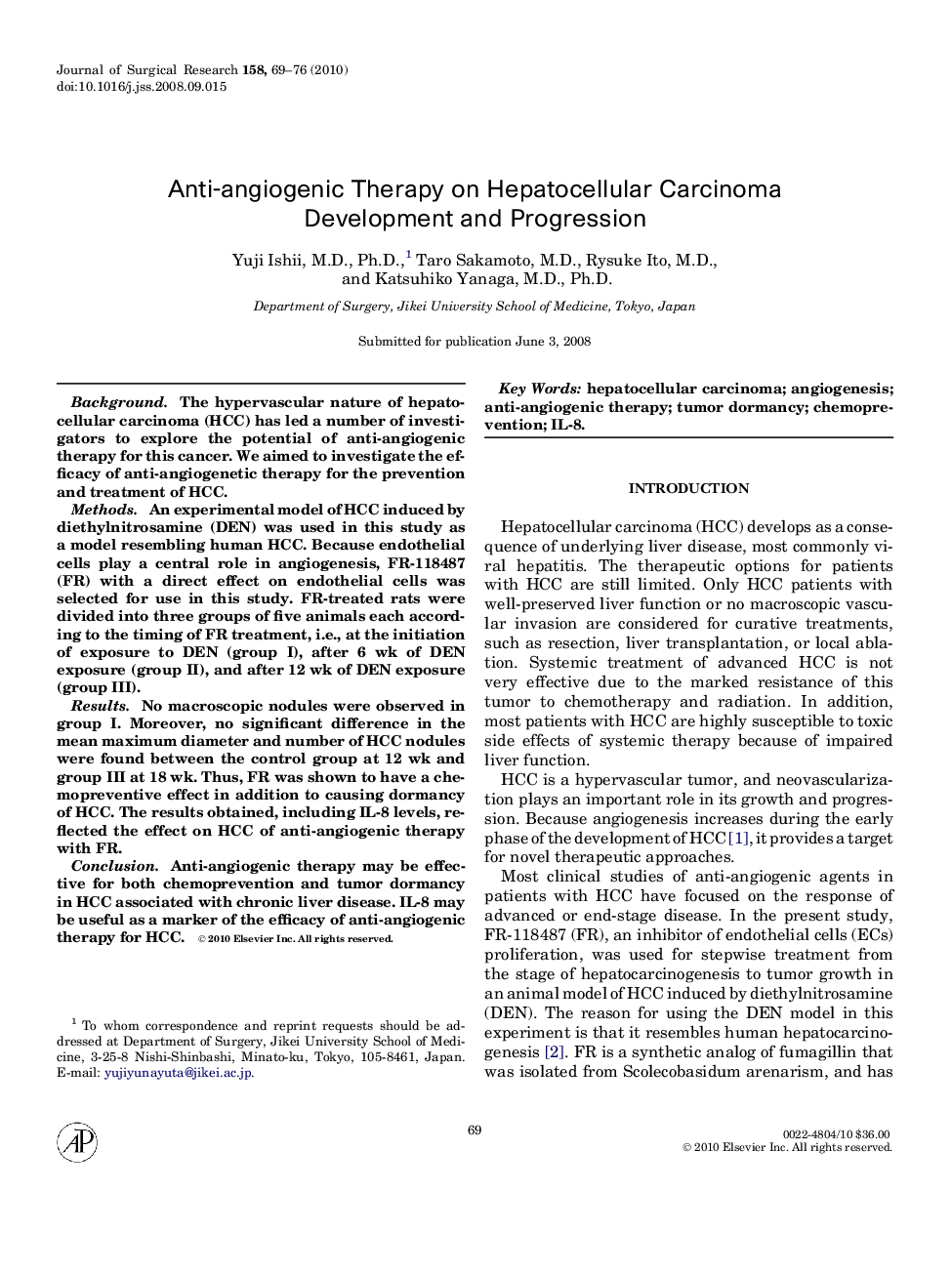| Article ID | Journal | Published Year | Pages | File Type |
|---|---|---|---|---|
| 4303329 | Journal of Surgical Research | 2010 | 8 Pages |
BackgroundThe hypervascular nature of hepatocellular carcinoma (HCC) has led a number of investigators to explore the potential of anti-angiogenic therapy for this cancer. We aimed to investigate the efficacy of anti-angiogenetic therapy for the prevention and treatment of HCC.MethodsAn experimental model of HCC induced by diethylnitrosamine (DEN) was used in this study as a model resembling human HCC. Because endothelial cells play a central role in angiogenesis, FR-118487 (FR) with a direct effect on endothelial cells was selected for use in this study. FR-treated rats were divided into three groups of five animals each according to the timing of FR treatment, i.e., at the initiation of exposure to DEN (group I), after 6 wk of DEN exposure (group II), and after 12 wk of DEN exposure (group III).ResultsNo macroscopic nodules were observed in group I. Moreover, no significant difference in the mean maximum diameter and number of HCC nodules were found between the control group at 12 wk and group III at 18 wk. Thus, FR was shown to have a chemopreventive effect in addition to causing dormancy of HCC. The results obtained, including IL-8 levels, reflected the effect on HCC of anti-angiogenic therapy with FR.ConclusionAnti-angiogenic therapy may be effective for both chemoprevention and tumor dormancy in HCC associated with chronic liver disease. IL-8 may be useful as a marker of the efficacy of anti-angiogenic therapy for HCC.
